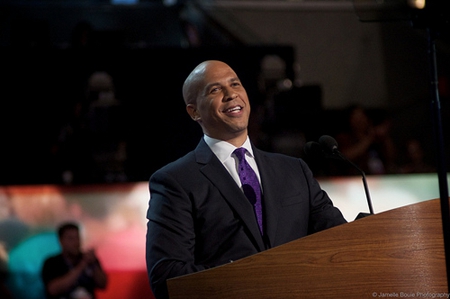Chris Gilson looks at the best in political blogging from the Beltway and across the States.
Government shutdown and the debt ceiling
This week, the U.S. government shutdown continued along with the continuing threat that the country might reach, and exceed, its debt limit on the 17th. On Saturday, The Hill’s Congress blog says that the shutdown has opened up a larger debate about the role and size of the government, and may have provided a ‘roadmap’ for identifying taxpayer funded programs and services that Washington could potentially live without. On the other side of the debate, Crooks & Liars has five charts that show why the US does not have a debt crisis. Meanwhile, Doug Ross has five reasons why the GOP will win the shutdown. On Sunday, Outside the Beltway reports that negotiations in the Senate to open the government and raise the debt ceiling had stalled because of the Democrats’ new focus on the 2011 sequestration cuts.
Many commentators have condemned and praised Texas Senator Ted Cruz for his role in the shutdown. Roll Call says that while some are saying that Cruz has caused a ‘Democratic wave’ of support, the Republican’s poor polling this week may reflect popular displeasure with Congress, rather than the party itself. Meanwhile, The Atlantic says that Ted Cruz is winning big, at least within the conservative Tea Party ‘bubble’.

Going back to one of the main reasons for the shutdown in the first place, the American Thinker argues that the Founders would have applauded House Republicans in their attempts to defund Obamacare, as they outlined that it is the role of the House (rather than the Senate), to spend money. On Monday, Red State makes the case that Obamacare will destroy jobs, lower wages, and disrupt personal liberty, and that if it is allowed to continue in the budget, then there is no way that it will ever be repealed. Meanwhile, Daily Kos examines the ‘false equivalence’ of media coverage of the Democratic and Republican parties during the shutdown.
As the week continued, the makings of a deal began to form. On Monday, The Atlantic reports on a tentative deal between Senate Majority Leader, Democrat Harry Reid, and the Minority Leader, Mitch McConnell to end the shutdown and raise the debt ceiling, for at least six weeks. House Republicans also worked towards their own budget bill early in the week, but it did not make it to the floor for a vote, as there were not enough votes for it to be passed, reports United Liberty.
By Wednesday the Senate was able to put its bill to a vote, passing by 81 votes to 18. The White House Dossier says that the deal, which was ultimately passed by the House, and signed by President Obama, shows that the Tea Party is ‘victorious’, because they have drawn attention to the country’s ‘dysfunctional’ government. After the House vote on Wednesday night, The Monkey Cage says that of the 87 Republicans that voted in favor of the deal, most are those that have shown themselves previously to be loyal to the Speaker, John Boehner. With the shutdown ended, Hit & Run says, ‘see you again in 90 days’, when the new Continuing Resolution on the budget runs out. Caffeinated Politics points out that even though it’s now over, the shutdown cost the economy around $24billion, while Informed Comment has the top ten ways that the shutdown weakened America.
Government and the Beltway
Outside the Beltway looks at how a small procedural change by the House Rules Committee guaranteed the shutdown would occur, just before it began, on September 30th.
With support for Democrats and Republicans at very low ebb after the shutdown, Via Meadia says that there is a renewed appetite in America for a third party alternative. While The Monkey Cage says that the electoral ramifications of the shutdown are far from clear, Daily Kos says that the 2014 elections for Congress should be a referendum on Republican radicalism during the shutdown. Reflecting on the current state of the Republican Party, The Hill’s Congress blog reckons that Bobby Jindal, the Chair of the Republican Governor’s Association should be the leader of the GOP, given that he represents the Governors of states that have ‘cut taxes, balanced budgets…and created jobs’.
The Monkey Cage looks at contribution limits for political campaigns, ahead of a Supreme Court decision on the issue. They say that overturning current limits would be a real problem, and that the present system is not inhibiting people in being active in their support for candidates.
Hit & Run says that now the shutdown has been resolved, we should get ready for a great deal of talk from Democrats over how bad 2011’s sequestration cuts have been. Another issue that may come to the fore now is immigration reform. American Thinker says that the Senate’s immigration bill will be dead in the water if it contains an amnesty provision, something that the President says must be in the bill if he is to sign it. Meanwhile, The Hill’s Congress blog says that Congress must stop playing politics and move forward to pass the immigration bill.
Foreign policy
Last week the Obama administration fired two nuclear missile commanders, according to Doug Ross. He says that this is the latest in a string of military firings; something he implies might be part of a ‘reshaping’ of U.S. military forces. Still on the military, The Hill’s Congress blog says that facing shrinking budgets, the defense forces must focus on gradually reducing the ‘phalanx of civilian employees and service contractors, which has remained illogically stable in size as military end-strength has fluctuated’.
Another negative aspect of the shutdown is the perceived damage to America’s international reputation. Outside the Beltway says that while for now, the rest of the world does not seem to mind the government’s dysfunction, but if they decide to change their minds, the economic costs could be quite severe. Meanwhile, Informed Comment has ten ways that the U.S. and Iran could avoid a catastrophic war.
The economy, society, and rollout of Affordable Care
While the Republicans’ were unsuccessful with their main aim in the lead-up to the shutdown to stop Obamacare completely, The Atlantic argues that they have managed to do the program some damage, with many Republican governors refusing to set up state exchanges, meaning increased pressure on the Federal government’s exchanges. Similarly, The Lonely Conservative says that the malfunctioning Obamacare website could take months to fix, while Via Meadia says that the administration is unlikely to meet its enrolment goal of 500,000 sign-ups by the end of October. Meanwhile, Wonkblog looks at the wildly varying costs of Obamacare from state to state
Looking at potential Federal government involvement in school administration, The Hill’s Congress blog warns that ‘Uncle Sam’ should not interfere by moving teachers from low to high-poverty schools.
Across the States
Northeast

On Wednesday, voters in New Jersey went to the polls to decide on the state’s new Senator. The Atlantic writes that the race between Democrat Cory Booker and Republican Steve Lonegan (which Booker won by a large margin) highlights the pathologies of the right and the left.
Ahead of the New York mayoral election in November, the Republican candidate Joe Lhota made the point at debate this week that he should not be ‘lumped together’ with national Republicans. With a year to go before the New York gubernatorial election, NY State of Politics looks at efforts by one Republican Assemblyman to bring in Donald Trump as a potential candidate.
NH Journal looks at comments on Twitter made by a former New Hampshire Democratic campaign staffer which called recent vandalism to the state’s Republican headquarters ‘hilarious’. The staffer later recanted his comments in the face of criticism.
South
This week in Florida, Democrats picked up a Republican held seat in the state legislature, despite the GOP raising more money for the campaign, writes Daily Kos. Still in Florida, SaintPetersblog says that the state has now been without a Lieutenant Governor for seven months.
Texas’ Burnt Orange Report says that no Texas Republican voted to reopen the government or avoid the debt ceiling.
Mississippi’s Cottonmouth blog looks at the first ‘shots’ in what may be a ‘civil war’ within the state’s Republican Party. They say that some of the state’s Republicans have condemned Senator Thad Cochran for not being ‘sufficiently Tea Party’.
Midwest
Hit & Run looks at a bill in the Ohio state legislature which may effectively derail minor party campaigns by requiring them to gain signatures equivalent to 1 percent of the last vote (currently 56,000). Local commentators say that the bill may be unconstitutional and threatens to disenfranchise the large number of unaffiliated voters in the state.
North Dakota’s SayAnythingblog looks at a recent oil pipeline spill in the state, which has released 20,000 barrels of oil into a nearby wheat field. They argue that while the spill must be dealt with soon, it should also be seen in the context of such incidents becoming rarer.
South Dakota War College has an overview of the history and current importance of railroads in the state.
Michigan’s Eclectablog says that in the state, you can be fired for being gay, lesbian, bisexual, or transgender, and argues that people need to be encouraged to take steps to change the law.
West and Pacific
In Alaska, National Journal looks at the advantage of being a local in the lead-up to the state’s Senate race in 2014. Meanwhile, still in Alaska, on Columbus Day, The Mudflats examines the explorer’s legacy, and calls for a replacement holiday.
Wonkblog examines how Obamacare has already cut Oregon’s uninsured rate by 10 percent through targeted enrolment. Meanwhile, Blue Oregon bemoans one of the state’s Representatives, Republican Greg Walden, who voted against the bill to reopen the government. They say that it is time for Walden to face a strong Democratic challenger come the next election.
Honolulu Civil Beat looks at the high costs for citizens to review public records (often in the tens of thousands of dollars), especially the governor’s travel records.
Calitics looks at California Governor Jerry Brown’s veto of several pieces of legislation over the weekend, making his veto rate 10.7 percent for the year. Still in California, Capitol Alert says that nearly twenty years after it was passed, the Republican’s anti-immigration Proposition 187 still causes headaches for the party, after large numbers of Latinos mobilized against it.
And finally…
Crooks and Liars says that conservative, white, men still dominate Sunday talk shows.
Outside the Beltway writes that the government shutdown has been a boon for foxes and squirrels at the White House.
Please read our comments policy before commenting.
Note: This article gives the views of the author, and not the position of USApp– American Politics and Policy, nor of the London School of Economics.
Shortened URL for this post: http://bit.ly/16grGqs



